Tuesday, May 14, 2024

The Latest @ USIP: The Future of Ukraine’s Democracy
At the moment, the priority for Ukrainians is to win the war against Russia. But to ensure victory in what comes next, Ukraine must strengthen its democratic practices so that it emerges from this conflict prepared for critical elections. Peter Erben, principal advisor and senior country director for Ukraine at the International Foundation for Electoral Systems, discusses how an improved democracy is the key for Ukraine’s possible ascension to the EU, the importance of ensuring Ukrainians forced to leave their homes are able to vote in the next elections, and what the international community can do to help.
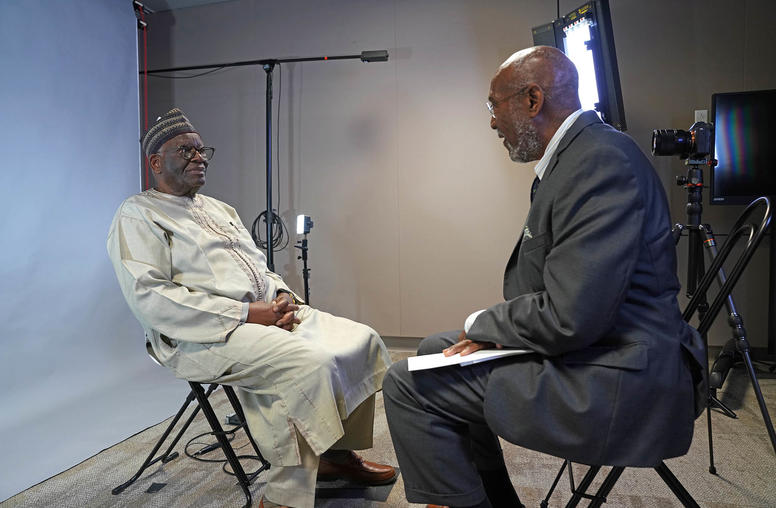
The Latest @ USIP: What’s at Stake in Nigeria’s Elections? (Part 2)
Nigeria’s national elections later this month will have major implications not only for Nigeria, but for West Africa and the continent more broadly. Ibrahim Gambari, chief of staff to the term-limited President Muhammadu Buhari, says the outgoing president has made organizing a peaceful, free and fair election process a cornerstone of the legacy he hopes to hand to his successor — and that he hopes civil society, political leaders and international partners like the United States can rally behind Nigerians as they exercise their right to vote.
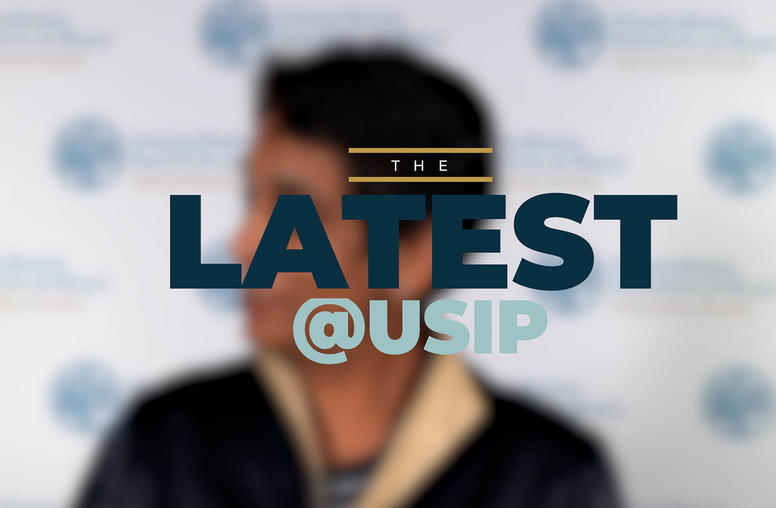
The Latest @ USIP: Global Shocks Are Setting Development Back — What Can Be Done?
Development efforts in the Asia-Pacific region have been severely hampered by global shocks — namely, the COVID-19 pandemic and climate-related catastrophes — in recent years. Indeed, in the region, human development gains have regressed to 2016 levels, which means it will be a major struggle for Asia-Pacific countries to reach the U.N.’s Sustainable Development Goals. Russia’s war on Ukraine has exacerbated these challenges. Kanni Wignaraja, assistant secretary-general at the U.N. and director of the U.N. Development Program’s regional bureau for Asia and the Pacific, discusses the impact of the compounding crises of COVID-19, climate shocks and the Ukraine conflict on development gains in the Asia-Pacific region; the long-term costs of delayed development; and creative, flexible approaches to addressing these challenges.
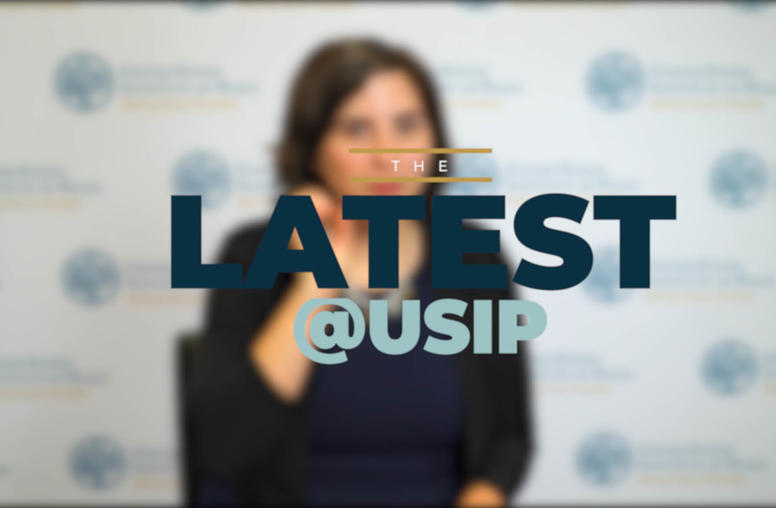
The Latest @ USIP: Promoting Women, Peace and Security
The Women, Peace and Security (WPS) agenda promotes women’s equal and meaningful participation in peace processes, peacebuilding and security. The WPS agenda has significantly advanced since the 2000 passage of U.N. Security Council Resolution 1325. In 2011, the United States instituted a national action plan on WPS, making it a national policy priority. USIP recently hosted a consultation with the Department of Defense and civil society leaders on how to further boost the WPS agenda and the U.S. national action plan.
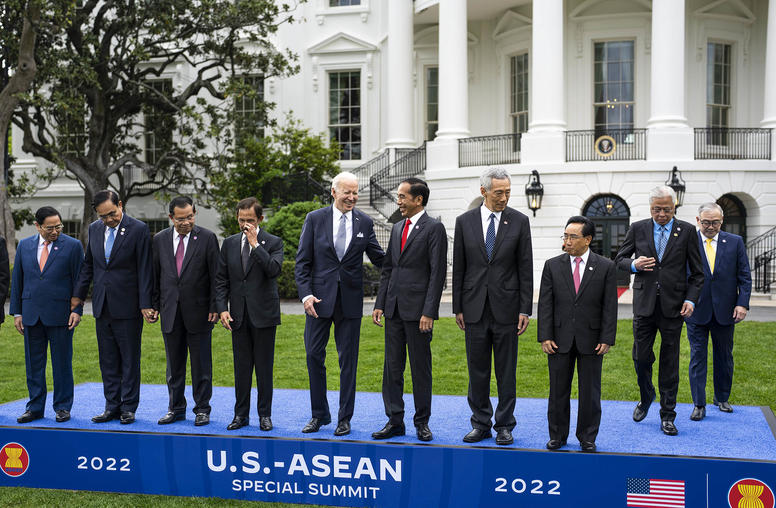
How Can Peacebuilding Organizations Help Regional Institutions?
This year’s U.N. General Assembly came amid a host of interconnected global challenges, like the war in Ukraine, global food insecurity and climate change. Indeed, the theme of the General Assembly was to find “transformative solutions to interlocking challenges.” As the world’s premier multilateral body, the United Nations’ recognition of the interconnected nature of today’s vexing challenges is vital to building consensus and devising solutions. But regional multilateral bodies — like the African Union (AU) or the Association of Southeast Asian Nations (ASEAN) — also have a key role to play. Despite regional organizations’ shortcomings, their member countries are bound together by geography and similar challenges and therefore more likely to find more common ground than the 193 countries in the United Nations.

Ask the Experts: What Drives Haiti’s Fragility?
While governance and economic issues have long plagued the country, Haiti’s instability has only accelerated since the assassination of President Jovenel Moïse in July 2021. Today, Haiti is experiencing a full-scale humanitarian crisis, with nearly half the population not having enough to eat. The U.N. has called for rapid action, and the United States has included Haiti in its list of priority countries under the Global Fragility Act. USIP’s Andrew Cheatham spoke with several Haiti experts about the structural and security challenges Haiti faces and possible solutions going forward.
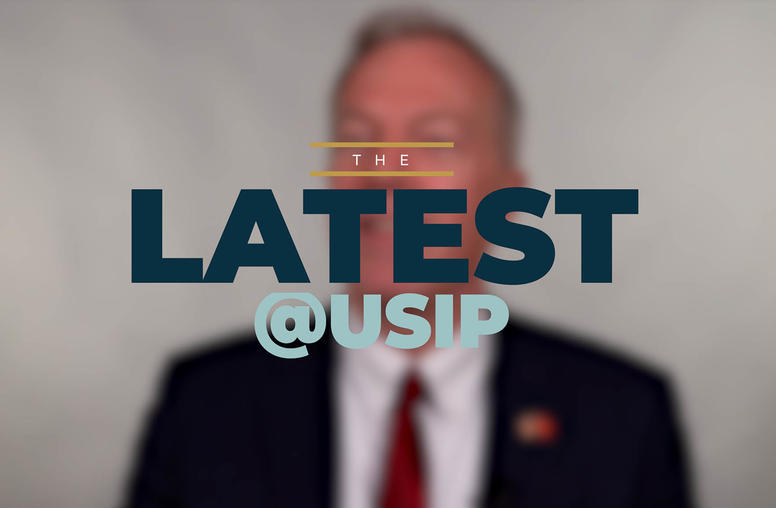
The Latest @ USIP: War Legacies and Peace in Vietnam, Laos and Cambodia
The process of postwar reconciliation between the United States, Vietnam, Laos and Cambodia is one of the most remarkable stories of the 21st century. The legacies of U.S. military involvement in Southeast Asia, once a major obstacle to normal relations, have gradually become the basis for a closer partnership. USIP recently brought together diplomats, advocates and authors to draw lessons from U.S. engagement in Southeast Asia and explore how Vietnamese, Laotians and Cambodians are healing from wartime suffering and building a future based on trust and shared interests.

Ask the Experts: What Drives Libya’s Fragility?
Libya has been trapped in cycles of violence and political instability since the 2011 revolution. Competing factions within Libya’s political, business and military elite have spent the last decade alternating between violent conflict and ineffective power-sharing agreements. Meanwhile, foreign powers have interfered in pursuit of their own geopolitical agendas, undermining international mediation efforts by the United Nations and others. USIP’s Andrew Cheatham spoke with two Libya experts to discuss what’s behind the country’s protracted fragility crisis and how Libya can move toward peace and democratic governance.

The Latest @ USIP: What’s at Stake in Nigeria’s Elections?
Mahmood Yakubu, the chairman of Nigeria’s Independent National Electoral Commission, discusses how his team is working to ensure free, fair and credible elections — as well as why the support of young people and political leaders is crucial for maintaining the longest period of uninterrupted democratic governance in the Nigeria’s history.

The Latest @ USIP: Venezuelan Youth Lead the Charge for Democracy
While Venezuela’s youth population might be disillusioned with the current political situation, they have shown a deep-rooted commitment to democracy despite the persistent repression of civil society. Wanda Cedeño, national coordinator of Voto Joven (Youth Vote) in Venezuela, discusses why voting is a central part of what it means to be Venezuelan, how her organization is helping youth shape the country’s future through political action and voter participation, and what the international community can do to support free and fair elections in Venezuela.
